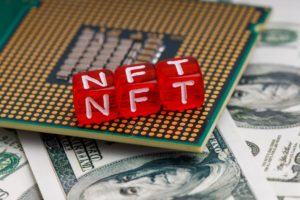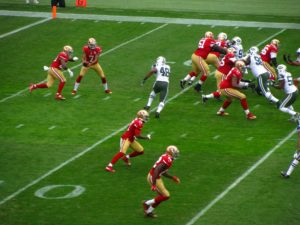
NFT Minters Arrested in Alleged Frosties Utility NFT Scheme
On March 24, the United States Attorney for the Southern District of New York (“NY”) issued a press release revealing that two people had been
NFTs (short for non-fungible tokens) are unique, often one-of-a-kind, digital files (usually images, photographs or short videos) that use blockchain technology to establish proof of ownership. Once created, or “minted,” NFTs can be purchased from the minter, and then (where allowed) re-sold by collectors in secondary markets.
KMT provides clients with ongoing, up-to-the minute advice on current federal and state laws, rules and regulations applicable to the NFT space.
KMT drafts, reviews and revises NFT licenses and minting agreements, as well as all manner of marketing agreements.
KMT’s comprehensive knowledge of the TCPA, ATSR and CASL, along with their pragmatic approach, has added tremendous value to AcademixDirect’s business. We can count on KMT for insightful feedback, judgment and guidance for complex compliance issues. The outstanding results we have obtained from David, Sean and Jonathan’s services truly make them the “Pros from Dover” for all things telemarketing.
-- NFT Client
There are serious regulatory repercussions for violation of any contest or sweepstakes laws. Given the risks, it is essential that NFT minters who wish to operate NFT contests retain attorneys who have experience in the laws applicable to both NFTs and contest promotions to assist them.
NFT license agreements protect original creators’ intellectual property rights and financial interests in their NFTs even after other people buy such NFTs. Licensing agreements set out exactly which rights original owners and buyers hold in purchased NFTs. NFT license agreements are coded into the NFTs’ respective blockchains (otherwise known as “smart contracts”), which certify the authenticity of the NFTs and autonomously execute NFT license terms during any and all resale of the NFTs. Given this vital role and the fixed nature of smart contracts, it is of paramount importance that NFT minters ensure that their NFT licenses include all terms as they want them and key legal protections.
NFT minting agreements contain the contractual provisions that govern the commercial relationship between the NFT minters and the parties whose images/works will be portrayed in the subject NFTs. The parties, among many other terms, must determine liability, who will create the “smart contracts,” the blockchain to launch the NFTs on, intellectual property rights to the underlying artwork, and the parties’ share of the NFTs royalty percentage, if any. With the right contracts in place, you could be left with an NFT business that has a lucrative upside, with very little risk.
The underlying artwork is intellectual property and separate from the NFT itself. To protect the underlying artwork featured in your NFTs, you should retain qualified legal counsel to register your copyrights and/or trademarks/brands.

On March 24, the United States Attorney for the Southern District of New York (“NY”) issued a press release revealing that two people had been

In this age of Social Media, NFT minters and businesses in general are enlisting the advertising services of influencers – people whose online popularity and

If you are interested in running a legal contest related to the “Big Game,” you should leave the “Super Bowl” trademark and the element of

To attract consumers in this increasingly competitive environment, NFT minters turn to promotional NFT contests to both generate excitement among consumers and increase company revenue. Where minters decide

As the NFT (“non-fungible token”) industry continues to flourish (passing $40 billion in value in 2021) an increasing variety of individuals and companies are looking

An ever-increasing number of celebrities, athletes and artists are commercializing their own NFTs (short for non-fungible tokens), in part, by entering into NFT contracts with

Non-fungible tokens (“NFTs”) represent a rapidly-growing industry in the online space, with sales exceeding $10.7 billion in the third quarter of 2021 alone. NFTs are

Before reintroducing the McRib in its restaurants on November 1st, McDonald’s created an NFT (short for non-fungible token) giveaway to celebrate the 40th anniversary of launching
Copyright © 2013–2021 Klein Moynihan Turco LLP. All Rights Reserved · Attorney Advertising